ALSO BY CARL DENNIS POETRY A House of My Own Climbing Down Signs and Wonders The Near World The Outskirts of Troy Meetings with Time Ranking the Wishes Practical Gods New and Selected Poems 19742004 Unknown Friends Callings PROSE Poetry as Persuasion
PENGUIN BOOKS Published by the Penguin Group Penguin Group (USA) LLC 375 Hudson Street New York, New York 10014
USA | Canada | UK | Ireland | Australia | New Zealand | India | South Africa | China penguin.com A Penguin Random House Company First published in Penguin Books 2014 Copyright 2014 by Carl Dennis Penguin supports copyright. Copyright fuels creativity, encourages diverse voices, promotes free speech, and creates a vibrant culture. Thank you for buying an authorized edition of this book and for complying with copyright laws by not reproducing, scanning, or distributing any part of it in any form without permission. You are supporting writers and allowing Penguin to continue to publish books for every reader. Page ix constitutes an extension of this copyright page. Cover art:
, 1975, by Richard Diebenkorn.
Oil and charcoal on canvas, 93 x 81 in. (236.2 x 205.7 cm). Estate #1495. The Richard Diebenkorn Foundation LIBRARY OF CONGRESS CATALOGING-IN-PUBLICATION DATA Dennis, Carl. [Poems. pages cm.(Penguin Poets) ISBN 978-0-14-312522-8 ISBN 978-0-698-14272-5 (eBook) I. Title. Title.
ACKNOWLEDGMENTS
Thanks are due to the editors of the following magazines in which some of these poems first appeared:
American Poetry Review (Even Nietzsche,
Job: A New Edition, To a Novelist, and Words from a Poor Man)
The Atlantic Monthly (Night Sky and Punch Bowl)
The Caf Review (The True Self)
The Cincinnati Review (Birthday, A Blessing, and Virtue)
The Cortland Review (From the Cove Hotel)
New Ohio Review (At the Mall and Habitat)
The MacGuffin (Angel and Cabinet Maker, Legacy, and Next Time)
The New Yorker (A Maxim, New Years Eve, and Unfolding)
Ploughshares (Behind a Bookcase, Introduction to Philosophy, and Loitering)
Plume (Animal Husbandry, Missing, and More Reason)
Provincetown Arts Magazine (First Words)
Salmagundi (A Clairvoyant, In the Kingdom, My Noah, and Summer at the Lake)
Slate (Silent Manners)
Upstreet (Mailing Gifts, December 21) This manuscript has benefited greatly from careful readings by several critical friends: Charles Altieri, Thomas Centolella, Alan Feldman, Mark Halliday, Tony Hoagland, Philip Schultz, and Emily Wheeler.
CONTENTS
I
H ABITAT
Its a lost cause, the effort to make heaven and hell Eternal, undone by the very creatures The two establishments are meant to house, Whose natural habitat is the stream of time. Yes, its a comfort to hope that the good Who are luckless here are lucky elsewhere, That their enemies, here triumphant, Later lose out. Let the violent suffer A heat more fiery than the rage within them. Let the betrayers of trust endure a chill Even more icy than their arctic hearts. Still, sooner or later, their victims The pillaged and trampled and rolled to the wall Safe at last in the balmy realm of the blessed, Will grow uneasy with the thought of their oppressors In endless torment.
Sooner or later theyll decide That the sentence already served is long enough. No one should be surprised when Abel Finally throws down a rope to Cain, when Jesus Stoops to take Judas by the hand. So hell, as imagination construes it, is doomed To dwindle away, and then heaven as well, As the saints return to earth to help the sinners Learn what damage they can undo If they give themselves to the effort, And what damage theyll have to leave as is.
N IGHT S KY
Its good news for the stay-at-homes like us, The new consensus among astronomers That the night sky appears roughly the same From any spot in the universe, With roughly the same number of visible stars At similar distances, in similar congregations. Those whove labeled the view from Earth provincial Turn out to be mired in provincial thinking. Look at the star map, well tell them.
Note How the stars have to make do without a capital, Without a center where all roads lead, a sun Whose pull proves irresistible to the ambitious. And if the stars we discern above our roof Dont seem as numerous as weve supposed them, Well remind ourselves of the many more That will show themselves when the gauzy curtain Is drawn back, the veil of dust and ash that now Obscures their shining. Let the day draw near When the Milky Way, visible once again To the naked eye, inspires a silence Appropriate to a revelation. Nightfall then will be all thats longed for. The morning and afternoon of a cloudless day Will seem to pass so slowly well wonder If the stars we think we remember Are only fancies, the dust of dreams. But no, look up.
Here they are again.
A T H OME IN THE C OSMOS
My friend writes with the news that the moon Was full on the night last week when his daughter Entered the world, a fact he might read as significant And auspicious, he guesses, if he believed in astrology And the universe were smaller, the Milky Way Only a hundred stars across, not a hundred billion, Each with a claim of influence on a birth chart. In a smaller universe, Ill assure him, Hed still feel inadequate to the thought That he and Louise are responsible for the new arrival In the borrowed cradle at the foot of their bed. Yes, they were present at her conception, But neither at that moment conceived of her, And neither now has a strategy For making her future bountiful. In a smaller universe they would still Give her the name of Esther in the hope Shed prove in time to possess a few Of dear Aunt Esthers many virtues, As opposed to favoring poor Aunt Minerva. A smaller universe wouldnt make it easier For them to find the stories she needs For inspiration, enough to outweigh The sad examples she might be exposed to In the yards of neighbors Or on the buses to school or in the halls.
In my letter Ill mention my hope she becomes The kind of girl who walks home on Fridays From telescope night at the science museum Entranced by the thought that the universe is too vast To be weighed and measured, that only imagination Can hope to embrace it, if not contain it. And if sometimes it seems too empty for comfort, So may her route at night from the museum. Still, shell have to walk it. If shes lonely, Maybe shell find some company in the moon As it rises slowly above the roofs, Alone on its sail across the sky.
S ILENT M ANNERS
In the book of manners that I rely on, One chapter is devoted to keeping silent, The one that reminds me now, as I pull off On the shoulder of a country road to ask directions, Not to ask the elderly man in overalls, Who crosses the field to greet me, Why he isnt wearing a hat on a day so sunny. If the sun has deepened the ruts in his face, Its too late now to stop it, the chapter reasons, And why remind him how much hes aged? As for the blood-vessel cobwebs beneath his eyes For me a sign of drinking over many years The same chapter warns me not to suggest, However gently, that help is available If he wants to stop.
Who knows what escape I might have tried if Id had his worries: The flooding and drought and heavy mortgage, The money he owes the hospital, though the treatment Failed to buy his wife an extra day. Already I owe him something for the reticence That keeps him from probing when I inform him Im on my way to visit an old friend. He doesnt ask why Ive come so seldom That I cant recall if Im anywhere near the turnoff. You cant miss it, he simply says, Three miles straight ahead at the stand of sweet gum. And when my doubtful look suggests I may find a sweet gum and never know it, He fishes a pencil out of his bib pocket And sketches its shape so deftly That Im certain Id know it anywhere, So deftly I need to resist the urge to ask If he ever considered a career in art. If he didnt, its too late now to begin.

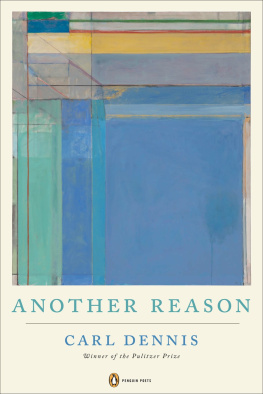







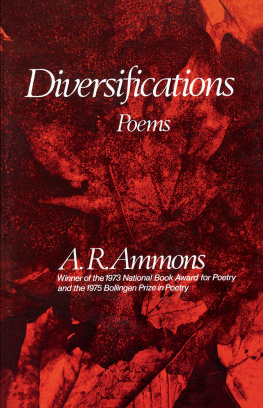
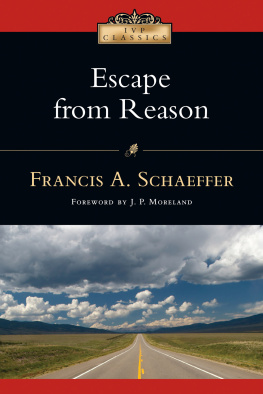
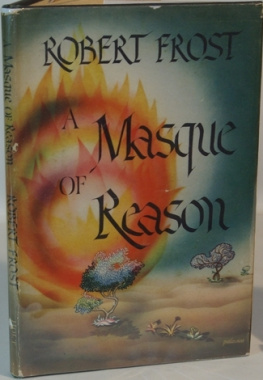

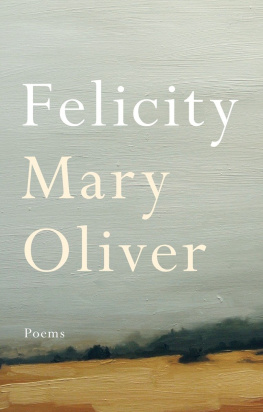



 USA | Canada | UK | Ireland | Australia | New Zealand | India | South Africa | China penguin.com A Penguin Random House Company First published in Penguin Books 2014 Copyright 2014 by Carl Dennis Penguin supports copyright. Copyright fuels creativity, encourages diverse voices, promotes free speech, and creates a vibrant culture. Thank you for buying an authorized edition of this book and for complying with copyright laws by not reproducing, scanning, or distributing any part of it in any form without permission. You are supporting writers and allowing Penguin to continue to publish books for every reader. Page ix constitutes an extension of this copyright page. Cover art: Ocean Park #79, 1975, by Richard Diebenkorn.
USA | Canada | UK | Ireland | Australia | New Zealand | India | South Africa | China penguin.com A Penguin Random House Company First published in Penguin Books 2014 Copyright 2014 by Carl Dennis Penguin supports copyright. Copyright fuels creativity, encourages diverse voices, promotes free speech, and creates a vibrant culture. Thank you for buying an authorized edition of this book and for complying with copyright laws by not reproducing, scanning, or distributing any part of it in any form without permission. You are supporting writers and allowing Penguin to continue to publish books for every reader. Page ix constitutes an extension of this copyright page. Cover art: Ocean Park #79, 1975, by Richard Diebenkorn.